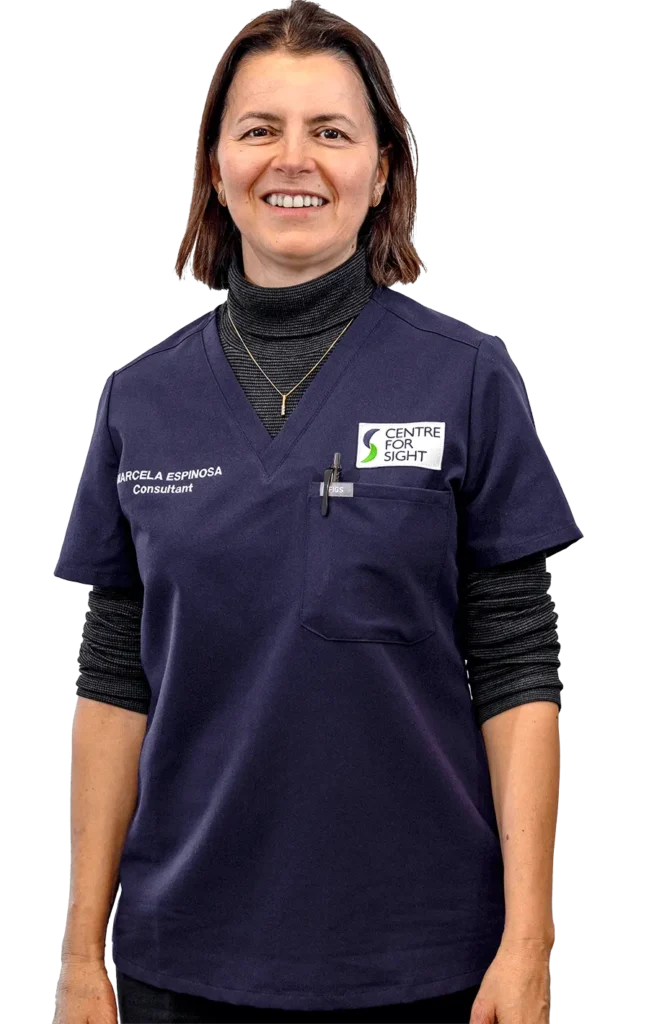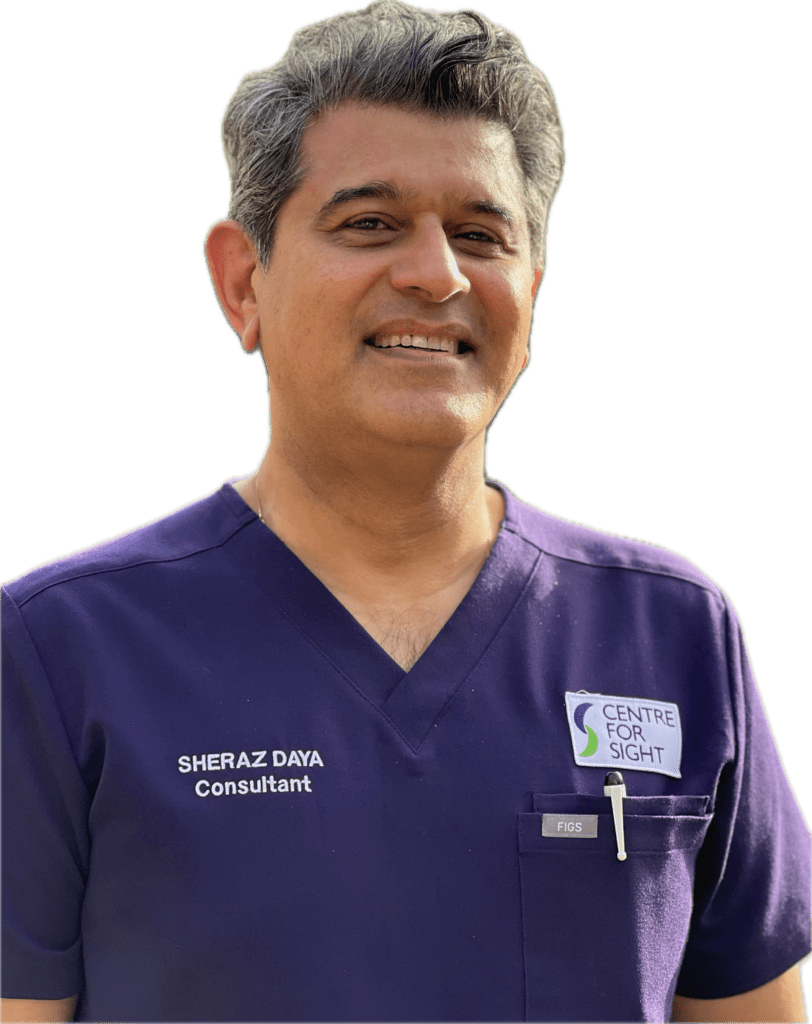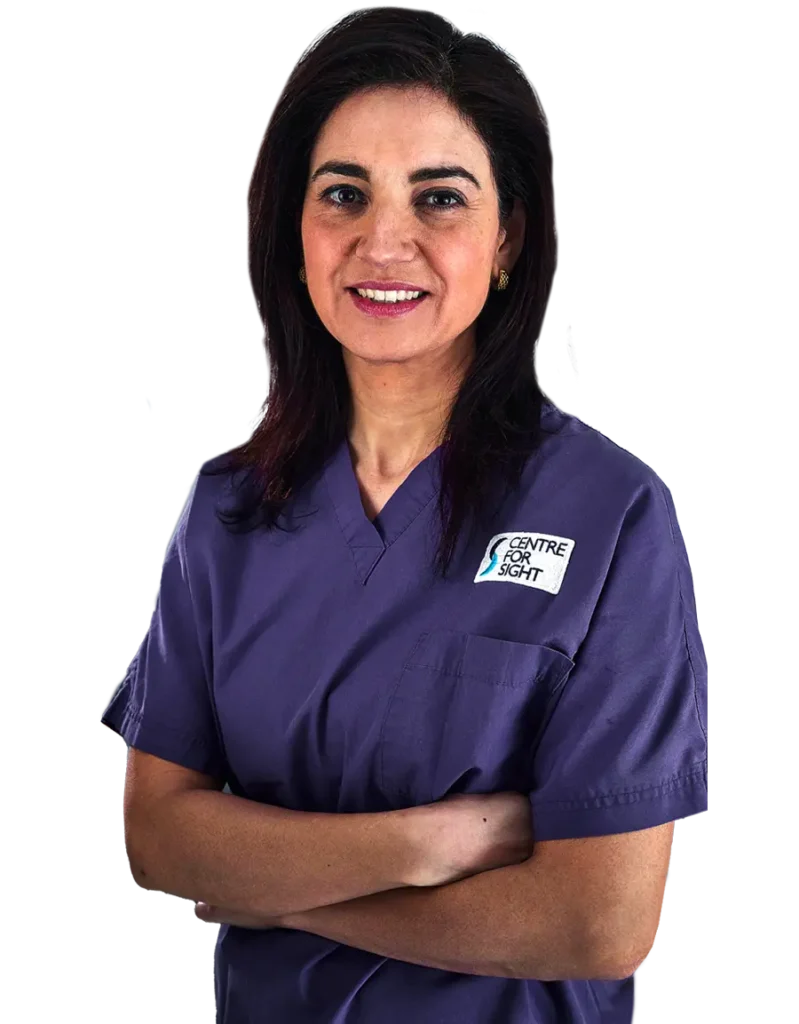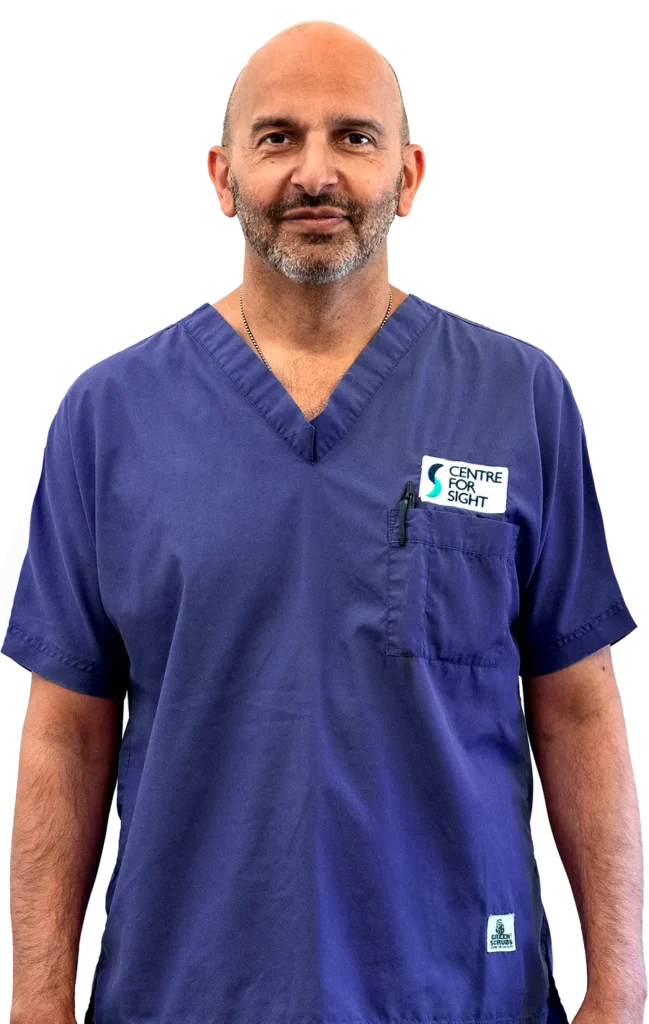Laser cataract surgery is a modern alternative to traditional cataract surgery. It uses advanced femtosecond laser technology to gently and precisely break up the cloudy lens in your eye (the cataract) before replacing it with a clear artificial lens. This technology helps improve accuracy, reduce risk, and can lead to a smoother recovery.
Discover Laser Cataract Surgery
Surgeons from around the world visit Centre for Sight to learn about our innovative techniques in laser cataract surgery. As global pioneers in femtosecond laser cataract surgery, we are the UK’s most experienced clinic using this advanced technique, with centres in London, Surrey and Sussex, you can feel confident knowing your vision is in expert hands.
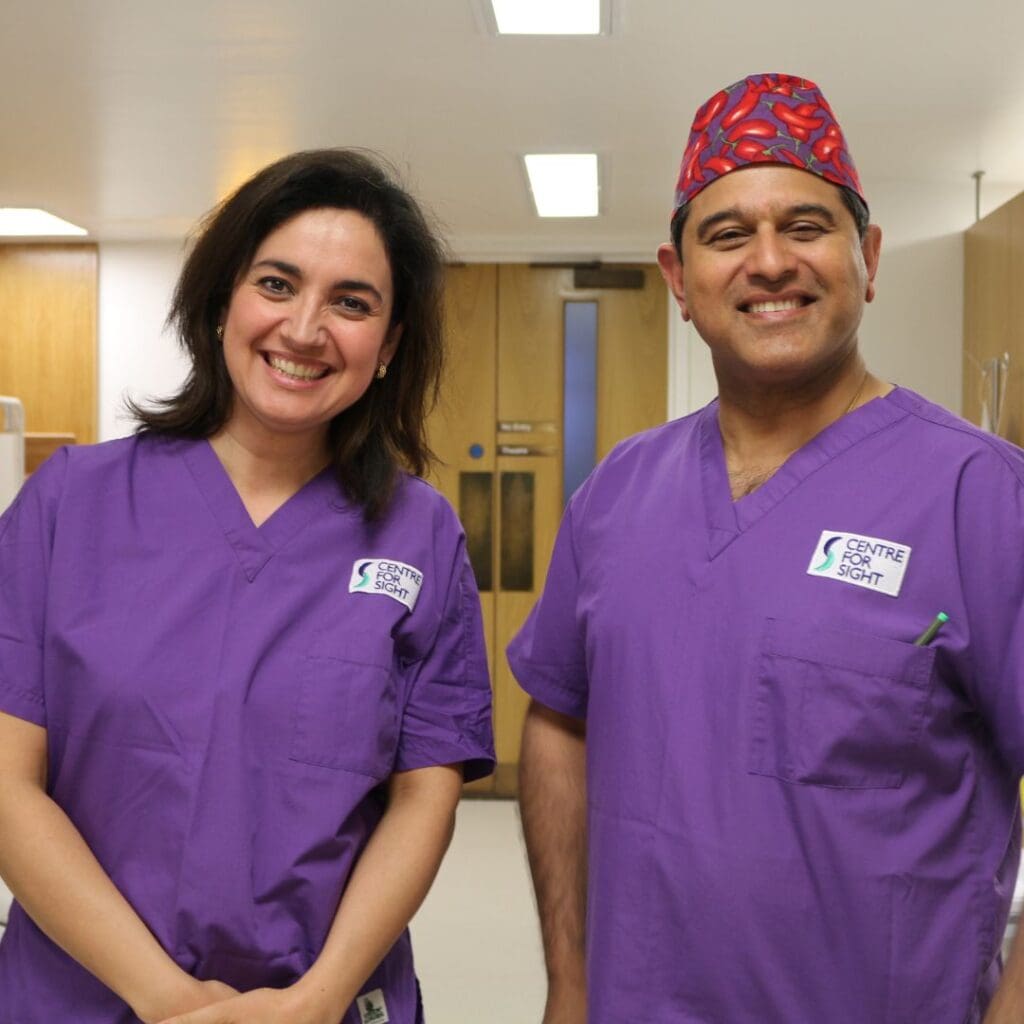
What is Laser Cataract Surgery?
Why Have Laser Cataract Surgery?
As we age, the natural lens in our eyes can become cloudy, making it harder to see clearly – especially at night or in bright light. You might notice your vision becoming blurry, colours looking faded, or needing stronger glasses more often.
If cataracts are interfering with your daily life – from driving and reading to recognising faces – laser cataract surgery could be the ideal next step. It doesn’t just restore lost sight; it can improve your quality of life.
Laser Cataract Surgery is particularly beneficial for individuals with pre-existing astigmatism, as the laser can be used to correct this condition during the surgery.
Types of Cataract
Cataracts are classified based on their location within the eye’s lens and their underlying causes. The most common age-related cataracts are:
Cortical Cataract
Nuclear Cataract
Posterior Subcapsular Cataract
Why Choose Centre for Sight?
Trust Centre for Sight — the UK’s leading clinic of excellence, dedicated to providing you with premium eye care. Here are a few reasons why you should choose us:
| Cataract Surgery | Centre for Sight | Other |
|---|---|---|
| Laser Cataract? For precision and safety | ? | |
| Sedation Included - Intravenous | ? | |
| High Performance Lenses - To reduce/eliminate the need for glasses | ? | |
| Tailor-made/ Customised - care for each patient and each eye | ? | |
| 24/7 Emergency Contact | ? | |
| Where eye surgeons go for their Cataract Surgery | ? | |
| Long track record - Est. 1996 | ? | |
| Daily Mail list of UK Top Surgeons | ? | |
| Ophthalmologist Power List 100 | ? | |
| Trouble-shooters - problems from elsewhere | ? |
Types of Lenses
During your cataract surgery procedure, the clouded natural lens is replaced with an artificial intraocular lens (IOL). Your consultant will walk you through the lens that is most suited to your condition. Some of these will include:
- Monofocal IOLs: Designed to provide clear vision at one distance, typically set for distance vision, reading glasses will be required for nearsighted tasks.
- Multifocal IOLs: These incorporate multiple corrective zones to allow for both near and distance vision, and in turn reduce the need for glasses.
- Toric IOLs: These are specifically designed to correct astigmatism, providing clearer vision for patients with this condition.
- Extended Depth-of-Focus (EDOF) IOLs: These provide a continuous range of vision, enhancing intermediate and distance vision with reduced visual disturbances.
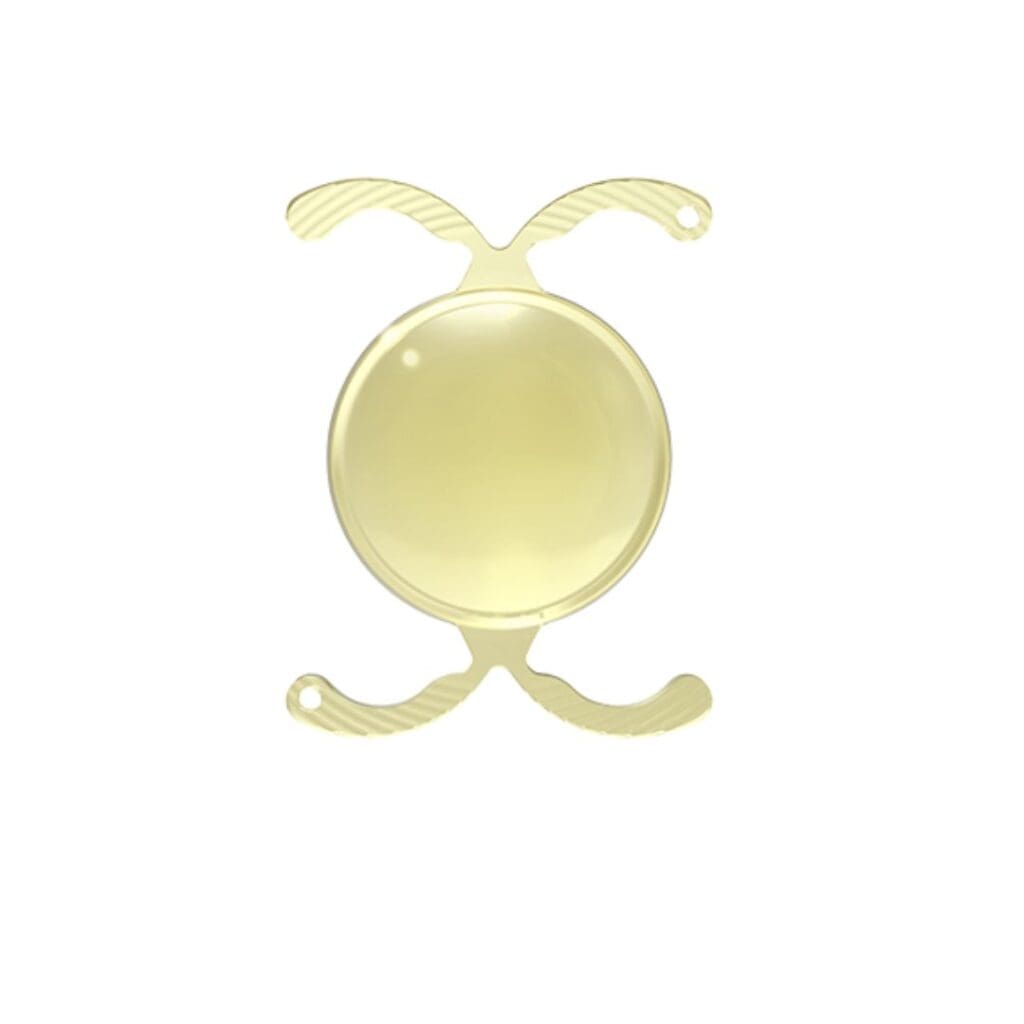

Price of Laser Cataract Surgery
The cost of cataract surgery typically ranges from £3,497 and £4,988 per eye, depending on factors like the type of IOL selected and the technology used. Many private health insurance plans cover cataract surgery, as it is a medically necessary procedure. At Centre for Sight, we offer flexible financing options up to 24 months, to ensure you receive the care you need without financial stress.
Book a free consultation to learn more about pricing and financing options available to you.
Patient Journey
FAQs
The procedure is generally painless. Local anesthesia is used to numb the eye, and patients may experience mild pressure but no significant discomfort.
The laser-assisted procedure typically takes about 15-30 minutes per eye, though you should expect to be at the clinic for a few hours to accommodate preparation and post-operative care.
Most patients notice improved vision within 24-48 hours, with complete recovery occurring over several weeks. Your surgeon will provide specific guidelines for post-operative care.
As with any surgical procedure, there are potential risks, including infection, inflammation, or issues with the IOL. However, complications are rare, and the procedure is considered safe and effective.
Please click here to see the different types of lenses we have available for cataract surgery.
Our Consultants
Patient Testimonials





